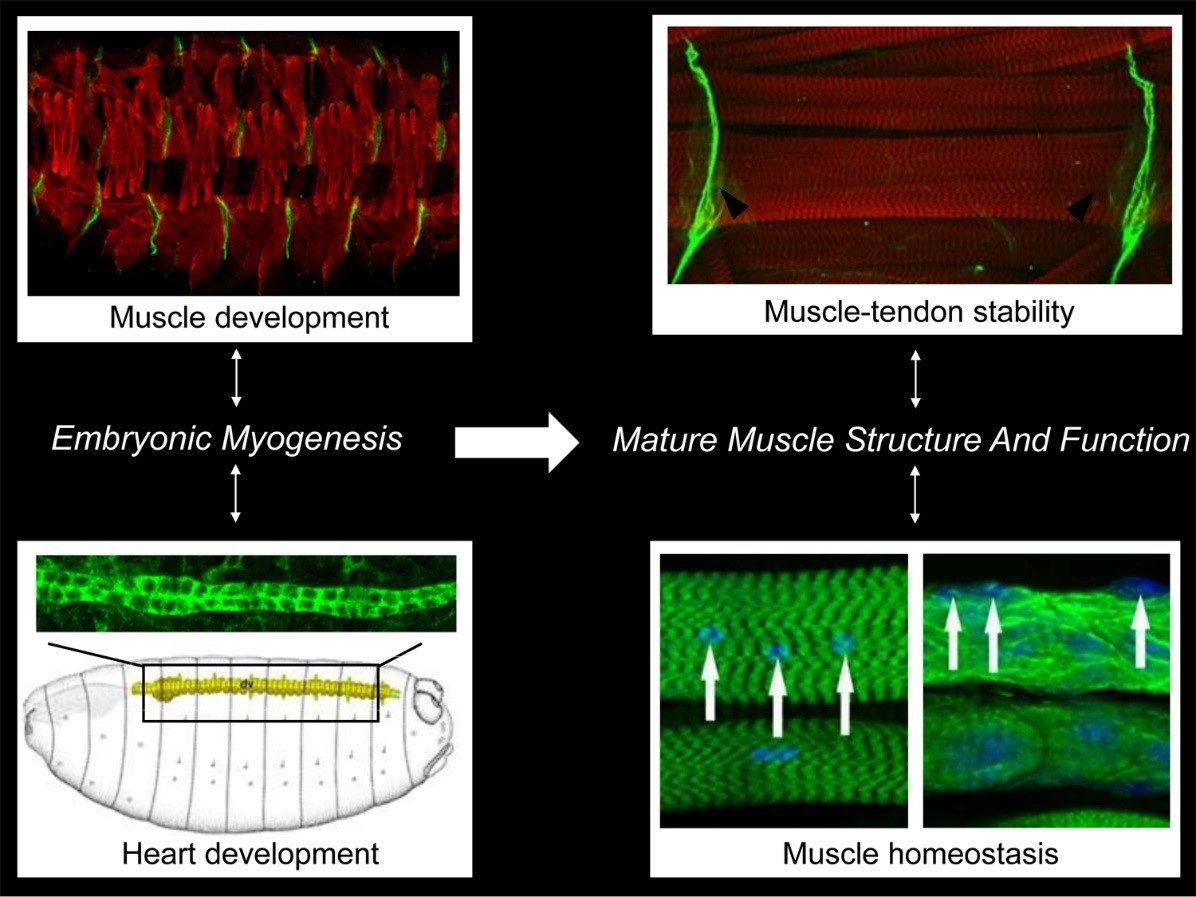Welcome to the E Geisbrecht Lab
Our lab has a broad interest in understanding the cellular and molecular mechanisms that contribute to the development and maintenance of tissues essential for organismal viability and health. Most animals are mobile and spend a considerable amount of their energy and time foraging for food, escaping danger, and searching for a mate. This ability to move requires sensory input from the nervous system and motor output facilitated by contractile myofibers. We are especially interested in uncovering cellular processes that govern the formation and continued use of healthy muscle tissue.
The fundamental morphological events underlying skeletal muscle development are strikingly similar between humans and model organisms such as the fruit fly Drosophila melanogaster. Moreover, the functional conservation of proteins required for muscle development and maintenance across diverse species is well-established. Drosophila has proven invaluable in the discovery and rapid characterization of new components in muscle-centric processes. As such, a main focus of our efforts has been to exploit the genetic and molecular tools in this model organism to further our research mission. While we maintain a strong interest in contributing to the understanding of intracellular and intercellular signaling pathways in development, our research also aims to bridge the knowledge gap between basic research and new targets for therapeutic interventions. Our laboratory uses genetic, biochemical, and imaging approaches to understand the molecular events that contribute to the development and homeostasis of normal muscle tissue, and how defects in normal muscle function may contribute to the onset and progression of myopathies.

Live imaging of Drosophila heart development